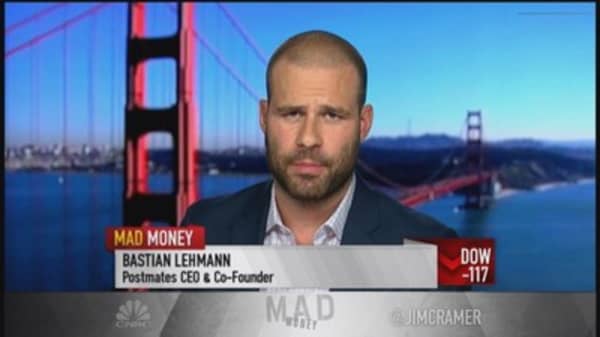With all of the recent talk of frothy private technology markets and bubbles, the mainstream media have largely neglected just how ubiquitous technology is today. We're all walking around with supercomputers in our pockets with unlimited storage and advanced capabilities we never could have imagined when the bubble burst in 2000.
In just a few years, we've gone from fixed Internet consumption tethered to our desks to always-on consumption. As a result, every company is now a technology company to some degree. Technology is the connective tissue that enables customer acquisition, workplace productivity, communication and more. Don't get me wrong; there is definitely some pricing froth. I talk about it here with regards to the IPO crunch.
At Metamorphic Ventures, we're fundamentally category agnostic. Consequently, there are very few early-stage technology companies that wouldn't fit our investment criteria given an impressive team, large market and innovative product.
At the same time, our street-level focus gives us unique insight into specific emerging markets, whether through consumer or enterprise demand. In fact, we built our advisory board around specific types of companies such as major web platforms, commerce, payments and media in order to best gauge the appetite of consumers and businesses for company solutions.
Read MoreThe powerful $75 smartphone is coming
Through our unique perspective, we've identified a few industries that are emerging and have massive growth potential over the course of the coming months. These are wellness, health care, egaming and the "consumerfication" of the enterprise.
To anyone living in a big city, the rise of the health-conscious consumer should come as no surprise. There are yoga and cycling studios on every corner, Whole Foods markets in every neighborhood, and streets full of people wearing LuluLemon and Nike athletic clothing.
We're already seeing start-ups emerge and scale in this space as there is enormous potential to disrupt existing business models and bring innovation to the field. Thrive Market, for example, is helping to bring healthy lifestyle products to the masses through a small yearly membership fee, which allows customers to purchase these traditionally costly products at a significant discount.
Hampton Creek is trying to democratize healthy food by indexing the world's plants in order to revisit classics like mayo and cookies, ultimately making products better for both our health and environment.
ClassPass is another company that is growing very quickly, similarly capitalizing on wellness trends. ClassPass is a membership program that allows people to choose from a buffet of exercise classes at various gyms and studios. The innovation here is in the business model, allowing people to save money on individual fitness classes while preventing them from needing to join a gym full time.




